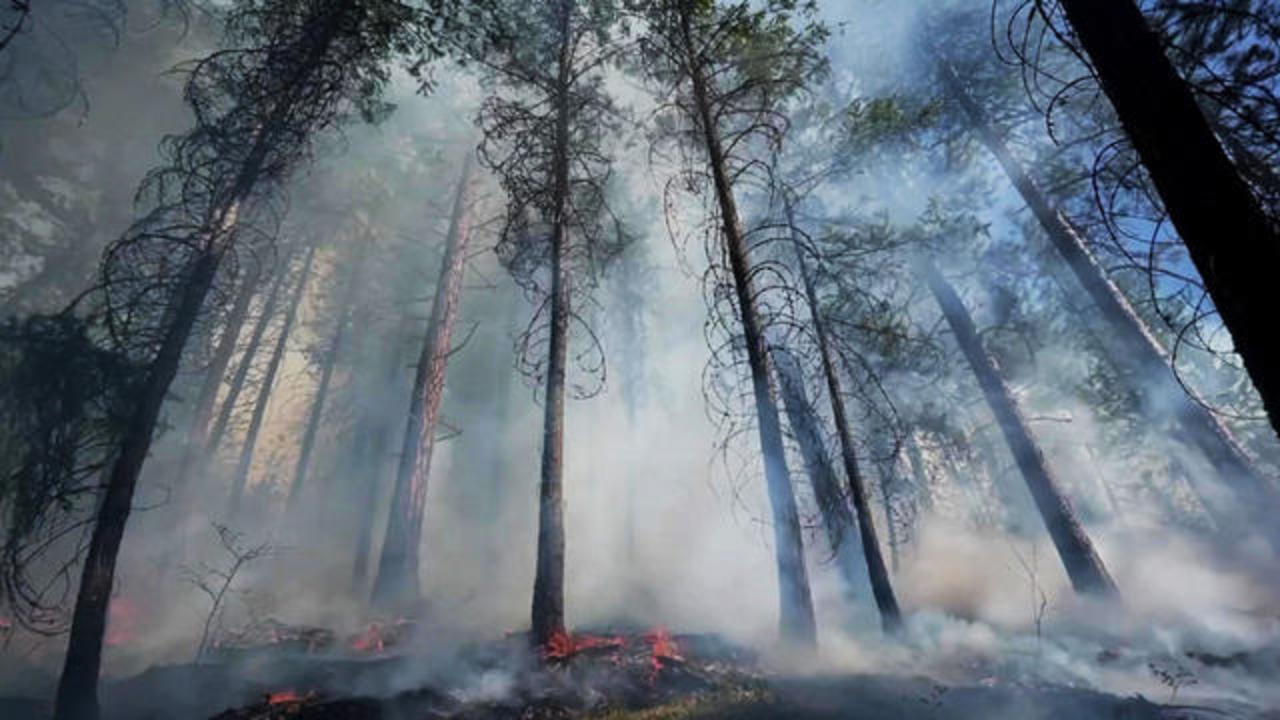- Courses
- GS Full Course 1 Year
- GS Full Course 2 Year
- GS Full Course 3 Year
- GS Full Course Till Selection
- Online Program
- GS Recorded Course
- NCERT (Recorded 500+ Hours)
- Polity Recorded Course
- Geography Recorded Course
- Economy Recorded Course
- AMAC Recorded Course
- Modern India, Post Independence & World History
- Environment Recoded Course
- Governance Recoded Course
- Science & Tech. Recoded Course
- International Relations and Internal Security Recorded Course
- Disaster Management Module Course
- Ethics Recoded Course
- Essay Recoded Course
- Current Affairs Recoded Course
- CSAT
- 5 LAYERED ARJUNA Mentorship
- Public Administration Optional
- ABOUT US
- OUR TOPPERS
- TEST SERIES
- FREE STUDY MATERIAL
- VIDEOS
- CONTACT US
1st AI System for Forest Fire Detection: Pench Tiger Reserve
1st AI System for Forest Fire Detection: Pench Tiger Reserve
01-07-2024

The Pench Tiger Reserve in Maharashtra has launched the first advanced Artificial Intelligence (AI) system for early detection of forest fires, according to a statement on June 26, 2024.
Location: Pench Tiger Reserve, Maharashtra
Context:
- Forest Fires: Forest fires are a significant threat to wildlife and ecosystems, causing damage to habitats and loss of biodiversity.
- Traditional Methods: Traditional methods of forest fire detection, relying solely on satellite-based alerts, have limitations, including false alarms and delayed response times.
- Technological Advancements: The use of AI and advanced technologies in forest fire management is a significant step towards improving efficiency and effectiveness.
Key Points:
- Advanced AI System: The Pench Tiger Reserve in Maharashtra has launched an advanced Artificial Intelligence (AI) system for early detection of forest fires.
- Features: The system features a high-resolution camera with a visual range of 15 kilometers, covering over 350 sq km of the tiger reserve.
- PTZ Camera: The pan-tilt-zoom (PTZ) camera is installed on an existing tower on one of the highest hills of Pench, near the Kirringisarra village.
- Control Room: The control room is located in the West Pench range office in Kolitmara.
- Satellite Integration: 15 commercial satellite services are integrated into the system, providing real-time alerts of forest fires within 3 minutes.
- AI-powered Platform: The platform, known as Pantera, leverages both camera feed and satellite-based data to provide accurate and reliable alerts.
- Differentiation Ability: The AI system can differentiate between smoke and clouds, minimising false alarms and ensuring accurate alerts.
- Infrared Feature: The system has an inbuilt infrared feature, enabling night-time detection of forest fires.
- Data Analysis: The system receives data on temperature, precipitation, wind, etc. and analyses it with past fire incidence data to forecast probable future fire incidences.
- Resource Management: The system can be integrated with water tanks, forest vehicles, etc. with GPS systems, enabling real-time tracking of resources and efficient fire management.
- Collaboration: The project was implemented through joint collaboration between Pench Tiger Reserve, Satpuda Foundation, Umgrameio (Brazil), and Forest Fire Tech, a division of Scaale Inc, USA.
- Funding: The project was funded by Solar Industries India Ltd, Nagpur, and the Maharashtra government.
Significance:
- Improved Forest Fire Management: The AI system is expected to improve forest fire management practices, enabling swift detection and response efforts.
- Protection of Wildlife: The system will help protect the diverse wildlife that inhabits the reserve by reducing the risk of forest fires.
- Enhanced Efficiency: The system will enable real-time management of fire incidences, reducing the response time and increasing efficiency.
Pench Tiger Reserve Overview:
-
Location:
- Situated in the southern reaches of the Satpura hills.
- Extends into the Nagpur district of Maharashtra as a separate Sanctuary.
-
Pench River:
- The reserve takes its name from the Pench River, which flows north to south.
-
Park Composition:
- Comprises the Indira Priyadarshini Pench National Park, the Pench Mowgli Sanctuary, and a buffer area.
-
The Jungle Book Connection:
- The area around the reserve is believed to be the real-life inspiration for Rudyard Kipling's famous work, "The Jungle Book."
-
Vegetation:
- Diverse mosaic of vegetation ranging from moist sheltered valleys to open, dry deciduous forests.
-
Flora:
- a wide variety of plant life, including teak, saag, mahua, grasses, and shrubs.
-
Fauna:
- Renowned for its large herds of Chital, Sambar, Nilgai, Gaur, and wild boar.
- Key predators include tigers, leopards, wild dogs, and wolves.
-
Birdlife:
- Over 325 species of resident and migratory birds, including the Malabar Pied Hornbill, Indian Pitta, Osprey, Grey Headed Fishing Eagle, and White Eyed Buzzard.
Must Check: Best IAS Coaching In Delhi
PLFS 2025: Monthly Jobs Data, Bigger Survey
PLFS 2025: Monthly Jobs Data, Bigger Survey

